Meet one of our instructors and learn more about training and career options in mediation.
Mediation and Dispute Resolution Certificate
Develop the knowledge and practical skills to effectively mediate disputes. Learn conflict resolution methods applicable to a wide range of professional settings. Prepare to achieve your Qualified Mediator (Q. Med) designation.
The Role of Mediation in Alternative Dispute Resolution
Mediation is a popular and highly effective form of alternative dispute resolution (ADR). Other types of ADR include arbitration, negotiation, and facilitation.
Key features of mediation:
- The mediator does not decide the outcome of a dispute; instead, they help parties reach mutually agreeable resolutions
- Resolutions reached through mediation are not legally binding
- Mediation is private, flexible, and voluntary
- Mediation can be used to resolve a wide range of commercial and civil disputes
Mediation and Dispute Resolution Certificate—Overview
The Mediation and Dispute Resolution certificate is a 12-week online course. Complete assignments when it’s convenient for you, participate in live discussions and role plays, and receive personalized support from a dedicated instructor.
In this course, you will learn:
- An overview and comparison of different ADR models, including arbitration, mediation, and negotiation
- Practical techniques for resolving workplace conflicts, including coaching, negotiating, and mediating
- How to uncover and address the root causes of conflicts
- Procedures and techniques for conducting family mediations
- Codes of practice and professional standards for mediators
- How to conduct a mediation online
Mock Mediations and Role Play—Practical Training Component
The Mediation and Dispute Resolution certificate includes 10 hours of mandatory role play using video conferencing software.
Students simulate and work through a variety of dispute scenarios, including:
- Workplace conflicts
- Community-based conflicts
- Family conflict involving spouses and children
- Division of property and child support
Role play is a mandatory requirement for earning the Qualified Mediator (Q.Med) designation from the ADR Institute of Canada (ADRIC).
Career Options in Mediation and Dispute Resolution
Mediation is used to settle a wide variety of disputes, including labour relations, business and consumer disputes, community and family conflicts.
Graduates of the Mediation and Dispute Resolution certificate are qualified to:
- Work toward the Qualified Mediator (Q.Med) designation
- Work as independent mediators, specializing in a specific industry or domain
- Join an ADR or mediation firm
Course Schedule and Format
Instructor-Led Format
(Synchronous Components)
Instructor-led courses follow a set class schedule with a dedicated instructor and classmates. Students can work on assignments and readings when it works best for their schedule. The instructor posts in the discussion forum and hosts live online lectures (via conference and/or video call). Students can use those opportunities to discuss assignments, industry topics, etc. with their instructor and peers.
The instructor-led format offers increased engagement and more opportunity for discussion. It requires students to complete assignments and participate in live lectures on a weekly basis.
Note: This instructor-led course requires mandatory participation in weekly role-play and mock mediation scenarios.
Live lectures (recommended) take place via video conference call on Tuesdays from 6:30 PM – 8:30 PM EDT and role-play sessions (mandatory) are on Wednesdays from 6:30 PM – 8:30 PM EDT. Please note that these times and days are subject to change with notice. In the event a student misses a mandatory session, alternative arrangements may be made available.
2 Weeks (40 hours)
Mediation is a form of alternative dispute resolution (ADR), which spans facilitation, negotiation, mediation, arbitration, adjudication, and litigation. Participants in this course will explore the history and goals of mediation, and the elements of the mediation process. This course examines the role of a mediator and delivers an overview of the skills necessary to successfully mediate.
2 Weeks (40 hours)
There are a number of options for resolving conflict that clients can choose from. The Dispute Resolution Assessment training course describes many avenues for dispute resolution and discusses the importance of understanding the range of options available for both non-adversarial and adversarial dispute resolutions. This information is crucial for assisting clients navigate the most appropriate method[s] for their particular situation.
2 Weeks (40 hours)
A rewarding and fulfilling career helping separated couples reach settlements and chart a better future for themselves and their children lies ahead for those who take part in our field-leading, cutting-edge family mediation course.
The Introduction to Family Mediation training course gives you the foundation to work in a variety of settings. You will learn to provide family dispute resolution services and interventions for families experiencing relationship conflict and going through the process of separation. The course will equip students with the knowledge and skills to mediate family disputes by understanding the fundamentals of family dispute resolution.
Topics focus on family mediation in practice. We cover screening clients for mediation, strategies for family mediation and steps in the family mediation model, and the separation of finances and property.
You will practise applying your family dispute resolution skills in a safe and professional online learning environment, learn to facilitate a family mediation, and examine and apply an ethical framework to your mediation using codes of practice and standards.
2 Weeks (40 hours)
Family mediation is challenging work requiring a commitment to the development of professional skills and practice, an ability to reflect upon and enter into critical analysis of performance, and an ability to produce professional documents to tight timescales. Family mediation requires personable, articulate, and assertive individuals who have good listening skills and practical experience working with individuals and couples. The impact of separation and divorce on all people involved, including children, can be difficult. Students will learn about the impact on families and how they must be carefully approached. The Managing Family Dynamics training course will teach students about the structure, function, and roles within a family system as they relate to the family mediation setting.
2 Weeks (40 hours)
Family mediation is practiced by lawyers and non-lawyers. It is imperative that all mediators understand the legal options and issues that arise during a family separation. While mediators do not provide legal advice, it is important to be aware of the implications of support, property division, parenting decision-making authority, and parenting time. Students will learn how to draft a Memorandum of Understanding (MOU) when a family mediation has concluded. Students will also learn about the importance of collaboration practice and options for a family mediation.
2 Weeks (40 hours)
In the Workplace Dispute Resolution training course, participants examine the sources and dynamics of workplace conflicts. They learn to identify the sources and dynamics of conflict in the workplace, with an emphasis on minimizing power imbalances in interpersonal workplace conflict. This course examines the impact of organizational culture on employees, diversity in the workplace, harassment policies, and the various methods of resolving workplace conflict including coaching, negotiating, and mediating with special emphasis on difficult work situations. Finally, participants evaluate conflicts, their sources, the parties, the relationships between the parties, and the legislative and regulatory environments to best implement organizational and workplace conflict management principles.
Instructors
Meet our industry-expert instructors.
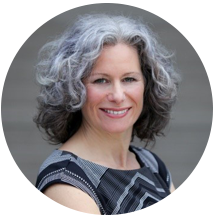
Parenting Coordinator | Facilitator | Mediator | Arbitrator
Click to read our blog interview with Kat
Kat has been working with people in conflict for over 20 years and has been providing services by distance for over 10 years. She has a diverse practice as a dispute resolution professional and registered social worker, in private practice. Kat’s practice emphasis is on relationship building and working across differences with a trauma informed and strength-based approach. Her main area of focus is working with families and groups with complex circumstances such as high conflict, a history of trauma or mental health challenges, addiction, involvement with the legal system or intercultural issues. Kat provides dispute resolution services, counselling and coaching, training, restorative justice circles, child interviewing and family assessments, organizational development, and group facilitation; She also provides the full range of her services by distance. She designs and provides training on mediation and conflict resolution skills, trauma informed practice, sexualized violence prevention, and family violence screening. Kat is also on the faculties of the Justice Institute of BC in both the Centre for Conflict Resolution and the Centre for Counselling and Community Safety, Continuing Legal Education of BC, and Herzing College in the Kompass Professional Development Program.
She has a Master of Social Work with a Clinical Specialization and her major project for her MSW was on the impact of grief and attachment in parenting coordination. She is a Chartered Arbitrator, Mediator, and Med-Arbitrator certified by ADR Canada, an Advanced Comprehensive Family Mediator certified by Family Mediation Canada, is on the rosters of Mediate BC, the BC Hear the Child, the BC Parenting Coordinator Roster Society and is recognized as a Qualified Parenting Coordinator in Saskatchewan. Kat received her Certificate in Conflict Analysis and Management and her Certificate in Family Mediation from The Institute of Conflict Analysis and Management with an emphasis on Conflict in Organizations and Group Facilitation Skills. She received her Certificate in Arbitration from the ADRBC (formerly BCAMI). She is on the Board of Directors of the BC Parenting Coordinators Roster Society, is President of the University of Victoria Alumni Association, and is a former member of the Boards of Directors of both ADRBC and Family Mediation Canada. Kat is a volunteer restorative justice facilitator with Restorative Justice Victoria, and is a member of the Association of Family and Conciliation Courts (AFCC), Family Dispute Resolution Institute of Ontario (FDRIO), and the National Association of Forensic Social Workers (NOFSW).
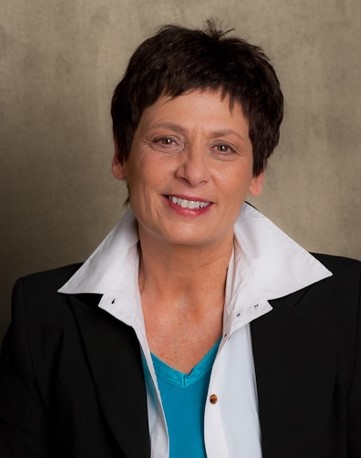
Click here to read an interview on our blog with Mary Joseph
Mary Joseph is a retired lawyer, United Church minister, and Certified Spiritual Director. She is also an accredited mediator who provides family mediation services in the private and public sector and teaches mediation at the professional certification level.
Mary practised immigration law from 1986 until 2004, with an emphasis on refugee law and skilled and domestic workers. She was also Vice Chair of the Canadian Bar Association – Ontario in Immigration as well as the founder and editor of their immigration newsletter. She was one of the original pioneers of same-sex immigration for Canada. From 2002 until her retirement in 2018, Mary practised collaborative family law exclusively. She was also ordained by the Universal Fellowship of Metropolitan Community Churches in 1999 and was a part-time pastor and mission strategist for the United Church of Canada until her retirement at the end of 2018.
She has been a guest lecturer at numerous educational institutions and societies, including the Canadian Bar Association, Osgoode Hall Law School, and the University of Toronto as well as the Learned Society and Mensa International.
Prior to being called to the bar, Mary tried out a variety of professions, including police officer, immigration border examining officer, industrial firefighter, and private investigator as well as several other service sector professions before committing to a lifelong practice of law. She is also a former board member of the Elizabeth Fry Society.
Mary holds a college diploma from Niagara College, a Bachelor of Arts from Brock University, a Juris Doctor from Osgoode Hall Law School, and a Master of Divinity from Victoria University at the University of Toronto.
Her published work includes: 2005: Seeking the Sacred; Leading a Spiritual Life in a Secular World ECW Press; Toronto 2006 (prolegomenon) (founder and ED of Seekers Dialogue), 1990 – 1993 Immigration and Citizenship Update, Canadian Bar Association – Ontario Immigration Newsletter Founder / Editor, 1985 Illegal Immigrants: Know Your Rights, Pamphlet for the Illegal Immigrant Support Group Toronto, Ontario, 1983 Immigration Handbook, Department of Justice Joint Author (Unpublished)
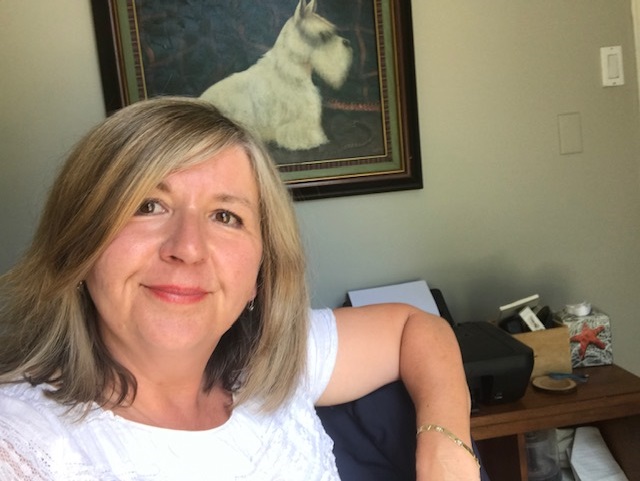
Click to read our blog interview with Hayley
Hayley is an accredited mediator with the Ontario Association for Family Mediation. She has a master’s degree in counselling psychology from the University of Toronto. She specializes in post-modernist theories, such as brief therapy, narrative strategies, and control mastery theories, as well as cognitive theory and CBT. Her undergraduate work trained her as a child and youth worker specializing in child development and behaviour in various milieus. She has co-created over 50 parenting plans with a range of needs, issues, and stages of child development as well as adult changes in executive and cognitive functioning.
After working in the children’s mental health field as an advocate and youth worker as well as with the children’s aid society as a parent support worker, Hayley wished to take her skills in family relations, child development, and parenting strategies in a different direction. She chose to work with separating families. Hayley’s vision was a “one-stop shop” for families to work with a team of integrated and specialized professionals. Hayley trained and worked as a neutral with Collaborative Practice Toronto. With Marion Korn (lawyer, mediator, and Collaborative trainer) and Eva Sachs (financial specialist), she set up Mutual Solutions, a hybrid practice catering to divorcing couples.
Hayley has been teaching post-secondary diploma and degree courses for 25 years. She has found the mix of learning and practising very potent for professional and personal growth as well as supporting clients. And she hopes to learn from you!
Since returning to the mediation field, she has immersed herself in working with high-conflict families and believes supporting families in crisis is essential and dynamic work.
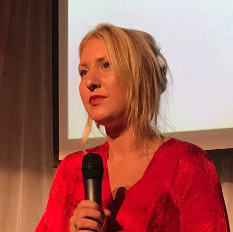
I have over 8 years of international and Canadian experience with specialized knowledge in Conflict Resolution, Peacebuilding, complex Multi-Party negotiation, Restorative Justice and Indigenous Rights. As a Mediator and Circle Keeper I bring a unique and highly diverse set of experiences with a focus on cross cultural settings and negotiations, power rebalancing, consensus building, conflict coaching, and conflict transformation in International, community and workplace settings. I am currently in my second year of my PhD Candidate at Queens University working in the Geography Department. My current research is looking at Critical Geographies of living well (buen vivir) in the Ecuadorian Amazon.
Where I am working with families of the Indigenous Shuar Community through community-based participatory research to examine alternatives to development and seeking to understand as well as preserve their traditional ecological knowledge located in their ancestral territory to counter hegemonic knowledge production.I have completed my Masters of Philosophy in International Peace Studies from Trinity College and have obtained Advanced Dispute resolution training from York University, and the GlenCree Centre for Peace and Reconciliation. I am fluent in English, Portuguese, Spanish and am working on my Haitian Creole. I learned to speak both Spanish and Portuguese while living abroad in South America after completing my undergraduate degree in Philosophy and Environmental Studies. My experiences abroad and especially in Latin America, have created a passion for sustainable development, and people. I believe through mutual understanding, creative problem solving and shared responsibility we can begin to solve some of the world’s most pressing issues. Having travelled to 42 countries across the globe all of my experiences, studies, and work have shaped my passion to make the world a better place.
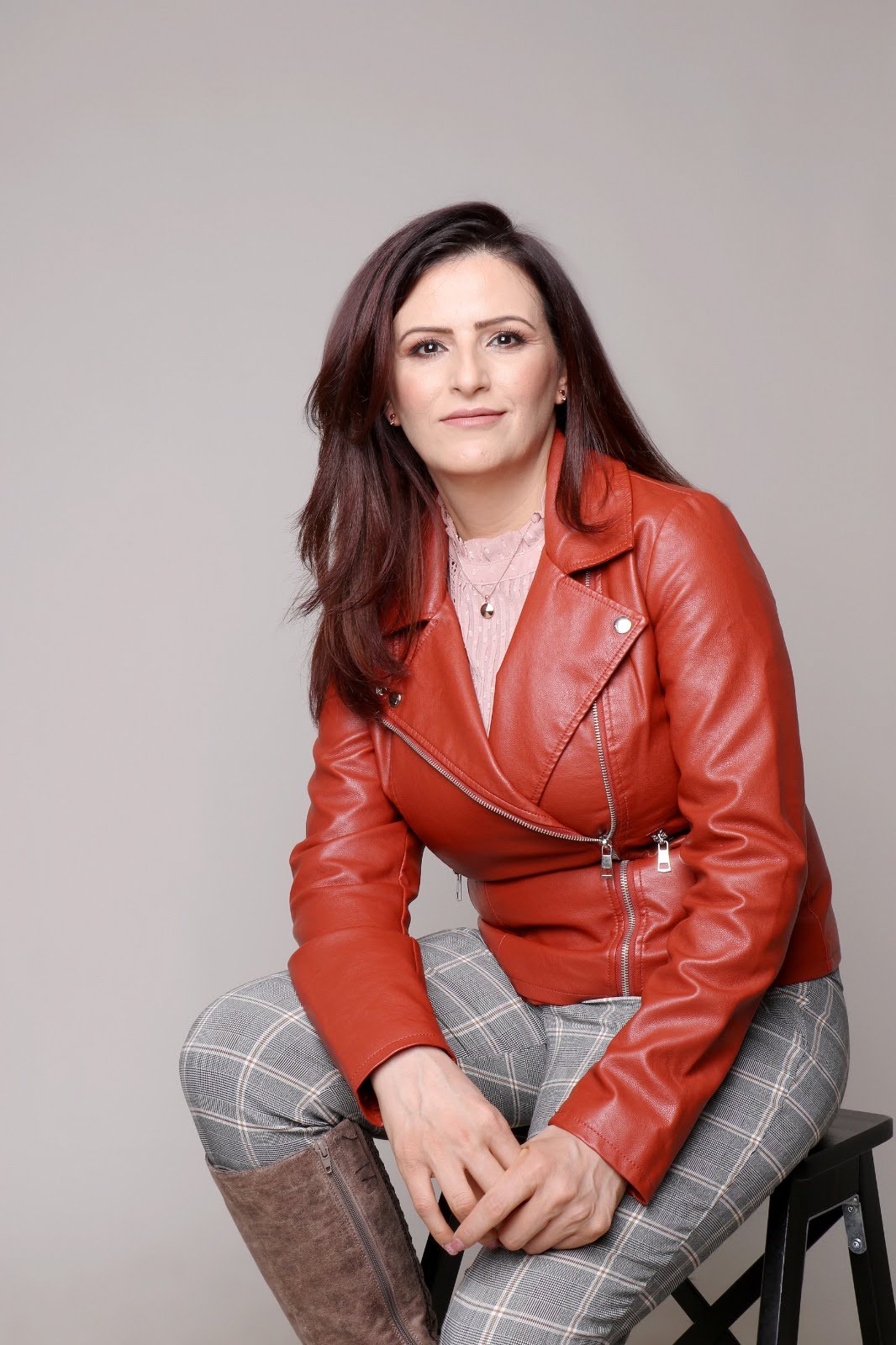
Rola Mustafa LLM, MBA, Q.Med is a highly accomplished professional with a deep passion for conflict resolution and workplace fairness. With a robust background in mediation and alternative dispute resolution, she has made significant contributions to diverse communities in Syria and Canada.
Her journey began in London, UK, where she pursued her academic interests by studying alternative dispute resolution as part of her LLM in International Law at City University of London. Years later, she solidified her expertise by obtaining her accreditation in mediation from the Centre for Effective Dispute Resolution. Rola has obtained certifications as a mediator from several Canadian institutes, including Family Mediation Canada, and accreditation from the ADR Institute of Canada. She highly values community involvement and dedicates her free time to volunteering with several organizations and boards.
In response to the intercultural challenges observed while working with diverse communities in Canada, Rola pursued further studies in intercultural communication at the University of British Columbia. Her aim is to actively contribute to the advancement of justice, equity, and inclusion within Canadian society.
As a global trainer in her field, Rola has conducted training sessions in both Arabic and English, sharing her invaluable insights in conflict resolution in various settings in Syria and Canada. With over 12 years of experience in Human Resources and Project Management, combined with her Global MBA, she brings exceptional proficiency to every aspect of her work. Currently, she serves as a Workplace Fairness Analyst at Workplace Fairness International, specializing in fostering inclusive and equitable workplaces.
Overview
Now Offering Specialized Mediation Training!
- The Advanced Family Mediation class from the Family Mediation certificate is accredited by the ADR Institute of Canada (ADRIC) and the ADR Institute of Ontario (ADRIO) for 21 hours (40 total required) of the specialized mediation and related training education requirement for the Qualified Mediator (Q.Med) designation.
- The Cultural Fluency in Mediation class from the Mediation and Dispute Resolution certificate is accredited by the ADR Institute of Ontario (ADRIO) and the ADR Institute of Canada (ADRIC) for 21 hours (40 total required) of the specialized mediation and related training education requirement for the Qualified Mediator (Q.Med) designation.
Ready to start?
Certificates and individual classes start frequently!
Related Certificates
Accreditation and Recognition
Read our guide to mediation/arbitration designations in Canada for a helpful breakdown.
- This online mediation certificate is recognized and accredited by the ADR Institute of Canada (ADRIC) and ADR Institute of Ontario (ADRIO). The course meets the basic mediation training requirement (40 hours) needed to pursue the Qualified Mediator (Q. Med) designation.
- The Advanced Family Mediation class from the Family Mediation Certificate is accredited by ADR Institute of Canada (ADRIC) and ADR Institute of Ontario (ADRIO) and fulfills 21 hours of the specialized mediation and related training education requirement for the Qualified Mediator (Q.Med) designation (40 total are required).
- The Cultural Fluency in Mediation class from the Mediation and Dispute Resolution certificate is accredited by ADR Institute of Ontario (ADRIO) and ADR Institute of Canada (ADRIC) and fulfills 21 hours of the specialized mediation and related training education requirement for the Qualified Mediator (Q.Med) designation (40 total are required).
Review a complete list of requirements to become a Qualified Mediator (Q.Med) here
Who Should Take the Course?
Our mediation students come from diverse professional backgrounds. We work with:
- Lawyers and individuals with a legal background
- Non-lawyers seeking to become professional mediators
- Business managers and HR professionals
- Educators
- Union representatives
- Government officials
Admission requirements:
- Post-secondary university degree or college diploma; OR
- Relevant professional experience



